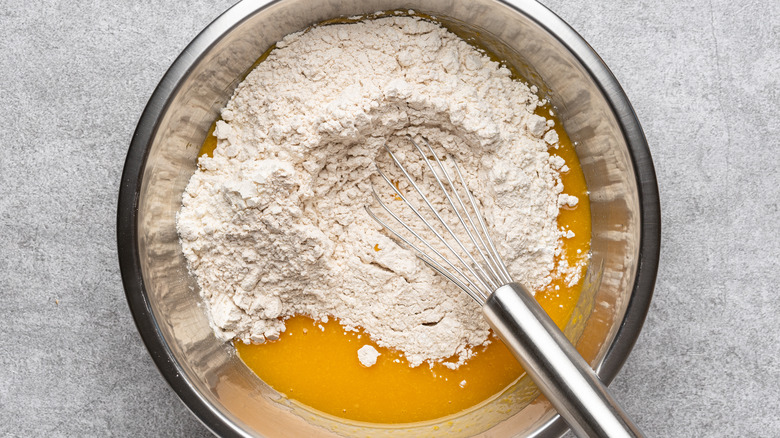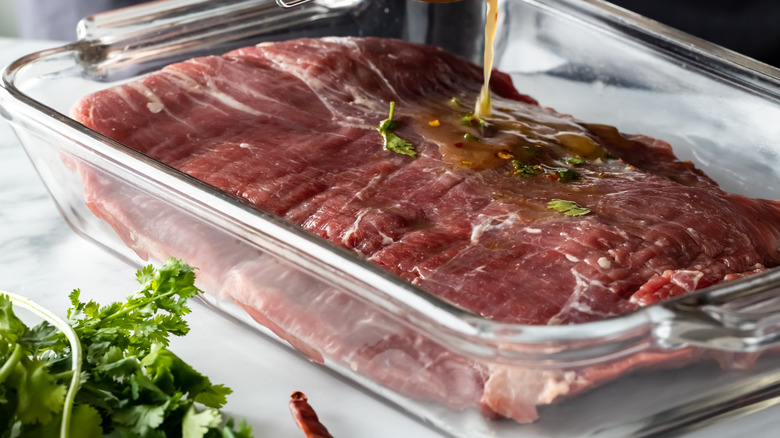Why You Shouldn't Marinate In A Metal Bowl
Of the many cooking methods that exist, few are as conceptually simple and radically impactful as marination. The idea of letting a meat or veggie sit in a concoction to impart flavor seems very basic but is actually a very versatile technique that allows chefs to reap a multitude of different results. As multifaceted as marination can be, there are still some situations (and specifically some tools) to avoid when getting into a marinade.
Technically it is okay to use stainless steel as a vessel to marinate as it is both non-porous and very durable, hence why it is such a prevalent material in the kitchen, per Orbit Kitchen. If your stainless-steel vessel is food safe and is of a high-quality, (you might have to do some research to find out whether or not it is a quality product) then it is safe to use for marinating and will likely not affect the meat or the marinade flavor too much.
Alternatives to metal bowls
The issues with metal dressed marinades come when the bowl is of a lower grade quality, the marinade is acidic, or some combination of these two, per Beyond Meat. Marination, particularly for meats, is often leveraged as a way to tenderize tough cuts or mellow out certain gamey flavors. It achieves this through the use of acidic foods like vinegar, lemon juice, or tomatoes. According to a report by Utah State University, the acids can react to the metal of the bowl and impart a metallic taste into the marinade which can ruin your marinade and damage the metal bowl.
To err on the side of caution is wise here. It's generally best to avoid reaching for your metal bowl when you have marinating on the mind. Alternatively plastics in the form of bowls, Tupperware, and baggies are non-reactive and safe to use. Ceramics and glass vessels are also non reactive and serve as better vessels, per Utah State University.

